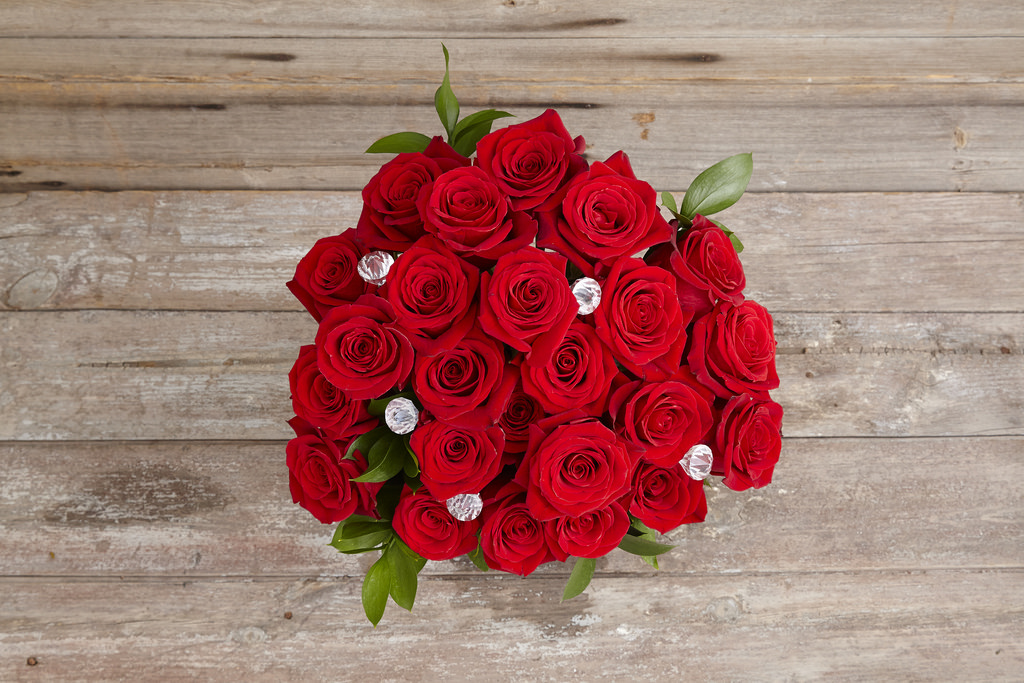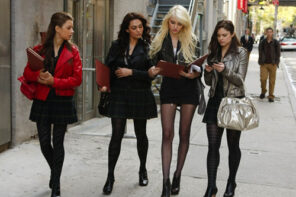On a frosty evening a couple of weeks ago, I trudged through snow banks and manoeuvred across treacherous stretches of ice with a smile plastered across my frostbitten face. I had summoned the courage to traverse the tundra of the McGill Ghetto because I was going to indulge myself in a ritual I look forward to each year: watching the premiere of the The Bachelor on a friend’s couch. As I sat watching, surrounded by friends I respect and admire, I was struck by a daunting thought: Why are we still watching this garbage? How is it that a show that derives its entertainment value from pitting women against each other brings groups of women together every week?
Twenty-three years into the Bachelor enterprise, hundreds of women have endured countless rose ceremonies with their teeth whitened, breasts pushed up, feet imprisoned in stiletto heels, and waists corseted in slinky cocktail dresses–all in the hopes of impressing a single humdrum ex-NFL quarterback.
For those dwelling under a rock, The Bachelor’s basic premise is that a dashing young (white) man, followed by a camera crew and a gaggle of thirty eligible women, embarks on a quest for true love. The quest includes a series of extravagant group dates, as well as the cherished “one-on-one” dates often involving cliché walks on the beach, sometimes on horseback. There are even some more innovative activities, like bikini skiing. These women spend months living together in the life-size version of Barbie’s Malibu Beach House, forming strategic alliances and plotting the demise of their enemies as they compete for the first place prize: a wedding ring. Women who find favour in the bachelor’s eyes receive roses at the weekly ceremony, signifying their invitation to remain in the competition; those who do not receive a rose must go. Twenty-three years into The Bachelor enterprise, hundreds of women have endured countless rose ceremonies with their teeth whitened, breasts pushed up, feet imprisoned in stiletto heels, and waists corseted in slinky cocktail dresses–all in the hopes of impressing a single humdrum ex-NFL quarterback.
It’s easy to speculate about why this show is problematic, but it’s also not hard to understand why it is so successful. The Bachelor has all the makings of a reality smash hit: pool parties, cat fights, tropical vacations, and steamy hot tub make-outs all accompanied by the consumption of copious amounts of alcohol. And yet, in today’s increasingly progressive culture, I find myself surprised that there continues to be space for a show that, while highly entertaining, relies on the defunct trope that marriage is the ideal outcome for a young woman.
TV shows like Sex and the City, Girls, and Broad City have served to disrupt traditional notions of romance by glamorizing casual sex, self-empowerment, and friendship. Even popular reality TV shows have taken on a similar quality. For instance, Keeping Up with the Kardashians, a series celebrating a family of female moguls who have achieved unprecedented success and fame, hardly places the prospect of marriage as a precondition for happiness or satisfaction. As the popularity of casual hook-up culture rises, the entertainment industry increasingly portrays marriage and monogamy more as pitfalls than as part of today’s great love stories. As a woman in my twenties, I find myself more often being targeted by ads for freezing my eggs than for shopping for wedding dresses. Love and dating are being treated like more of a chore, streamlined by the advent of apps like Tinder. It is faster and easier than ever to connect with potential partners, albeit for a night rather than life. Likewise, rejection is virtually as painless as the swipe of an online candidate to the left of the screen.
As a woman in my twenties, I find myself more often being targeted by ads for freezing my eggs than for shopping for wedding dresses.
In this era in which ballads dedicated to the single life like “thank u, next” are commonplace, fans of The Bachelor can still count on each episode to feature a woman in the back of a limo in hysterics. With mascara streaming down her face, viewers know she has not received a rose, and that she is going home alone. Perversely, these women are forced to face televised rejection by a man they had deemed with certainty to be their soulmate after having shared a singular cocktail in the company of twenty five women who were also vying for his attention. While the show undoubtedly offers hilarity and absurdity, it also provides viewers with an opportunity to live vicariously through those who are willing to act foolishly in the name of love (or to gain a platform to launch a rose company). And it does so at a time when the notion of a happily ever after is increasingly met with skepticism and cynicism.
While the show undoubtedly offers hilarity and absurdity, it also provides viewers with an opportunity to live vicariously through those who are willing to act foolishly in the name of love.
For most of its weekly running time, The Bachelor amounts to a glorified beauty pageant, teeming with superficiality. But in fleeting moments, it also conveys the sincere sentiment that some people are still out there, looking desperately for love. As the heteronormative, boy-meets-girl storyline becomes dated, and with our society headed in a decidedly pluralistic direction, The Bachelor has nonetheless managed to retain its appeal to a massive audience. It can be deeply disturbing, but it also represents an earnest search for companionship, which is not such a bad thing.
While I can almost feel my brain cells melt away as I watch the bikini skiers amble down the hill, I don’t see myself giving up on this guilty pleasure anytime soon.









Wonderful article, interesting observations, beautifully written.
To all to still believe in love and companionship but can also prosper without it.